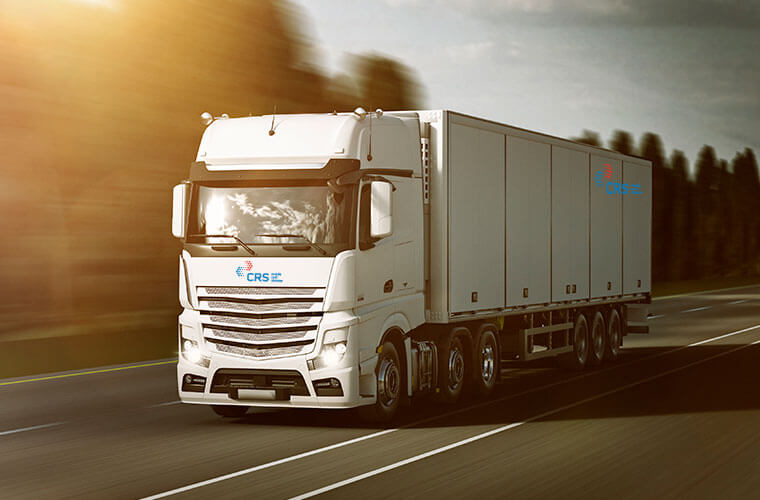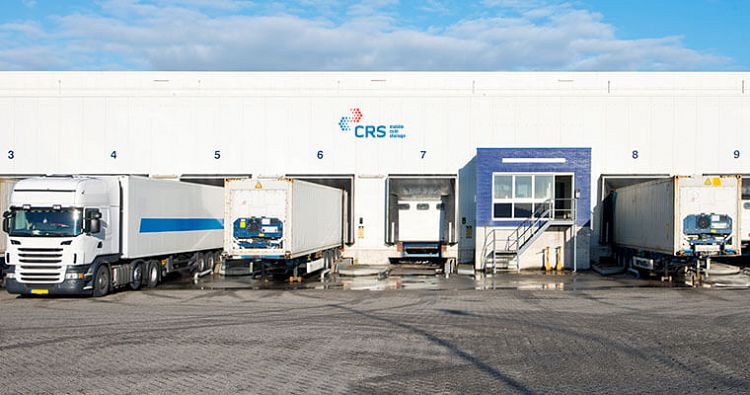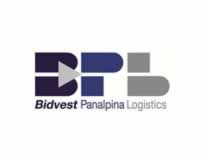What is a cold chain?
A cold chain is a type of supply chain that uses temperature-controlled units to transport goods from A to Z and anywhere in between.
The cold chain is an unbroken process that distributes goods from their original place of manufacture to points all over the country or world. This is all done without removing them from their refrigerated or frozen unit for extended periods of time.
Used to transport a number of perishable goods including fresh and frozen foodstuffs like meat, fish, poultry, fruits and vegetables, as well as non-consumables like pharmaceutical goods.
It also deals with perishables which have specific legal requirements, it must maintain the correct temperature range throughout transit.
This means that transportation to and from different cold store units must be kept to a minimum if businesses wish to adhere to the highest standards.
Why is the process so important?
Whether your organisation deals in foodstuffs, pharmaceuticals or other types of perishable goods, there are certain standards that must be adhered to.
Using portable cold rooms and refrigerated reefer containers, organisations can ensure that the quality and safety of goods is maintained from the point of harvest or production to their final destination.
Both produce and pharmaceutical products rely on temperature-controlled environments to retain their integrity throughout their (often long) journeys.
Portable cold storage units are equipped with complex temperature monitoring systems, allowing organisations to maintain the temperatures of perishables for hundreds or even thousands of miles. Without them, most goods will not even make it to their first stopping point.
As many goods travel globally, the need for a robust and secure chain is essential both for the customer and the organisation itself. When you look at the cold chain as an extension of your regular cold storage, the benefits and importance become even clearer.

Why does it have to be continuous?
Once out of regulated cold storage, goods will instantly begin to warm. At room temperature, food products can deteriorate rapidly leading to product wastage and more importantly, foodborne illnesses.
Fluctuating temperatures can cause problems that aren’t always easily detectable by eye, making them even more dangerous than visibly rancid food. With pharmaceuticals, the rapid change in temperature can damage the effectiveness of vaccines and other chemicals, rendering them unusable.
Unfortunately, most perishable goods will need to be transported from one cold storage unit to another at some point during their journey, which can cause complications in the cold chain. To combat this, it’s essential that every person involved in the process is ready with the correct cold store equipment to maintain the fluidity of the chain.
Whilst it’s impossible to keep perishables in cold storage 100% of the time, practising the correct handling methods will keep the time spent out of cold storage to a minimum.
What type of cold storage do I need?
The type of portable cold storage you’ll benefit from will depend entirely on the size of your business and the type of goods you distribute.
Fisheries, hospitals, caterers, supermarkets and a range of other organisations will find it advantageous to own some kind of portable refrigeration or freezing unit. Most unit types come in a range of sizes with a variety of pallet capacities to accommodate your businesses specific needs.

Types of portable cold storage include:
Blast freezers – Essential for maintaining the quality and integrity of meat, fish and poultry, as well as some fruits and vegetables
Pharmaceutical stores – Including chilled storage for vaccines and ultra-low temperature blast chillers for packs or plates
Refrigerated containers – Portable reefer containers offering optimum temperature control for fresh produce
Mega cold storage and wide span containers – Extra-large units for businesses with a higher stock turnaround or for those looking to increase their current cold store capacity
Specialist cold stores – Customised cold storage units for organisations with unique needs
If you’re still unsure which refrigerated or freezer unit is right for you, you can always talk to a cold store specialist about your specific needs.

Tips for maintaining a healthy and safe cold chain
Maintaining a strong cold chain is a complex and often difficult task. It’s a continuous and time-sensitive process, which means that any interruption, no matter how small, can have a serious impact on your organisation.
Whether it’s a problem with customs or a vehicle breakdown, keeping your cold chain running smoothly is a top priority.
- Choose high-quality cold store units – Cheaper units might save you money in the short term but they are more likely to encounter problems such as breakdowns or unreliable temperatures control in the future.
- Invest in proper packaging and storage methods – Inadequate packaging and storage leads to cross-contamination, wastage and can slow down the process.
- Train your employees – Ensure your employees understand the best practices to keep your cold storage safe and the supply process running like clockwork.
- Read up on the rules and regulations – This is especially important if you are shipping globally, as many countries have incredibly varied supply chain regulations. If you can’t navigate your way through the cold chain with ease, you might end up getting stuck at customs.
- Look for professional help – If your organisation is suffering due to profit loss, wastage or timing issues, a cold chain logistics expert can help you to devise a long term plan for a safer and more profitable process.
The most important part of the process is keeping the temperature of your goods regulated. Regular temperature monitoring, high-quality cold storage solutions and properly trained employees are your greatest allies when trying to maintain a successful cold chain.
CRS can help you choose a safe, high-quality cold storage solution for your business. Get in touch today or call us on 0800 085 2298.














